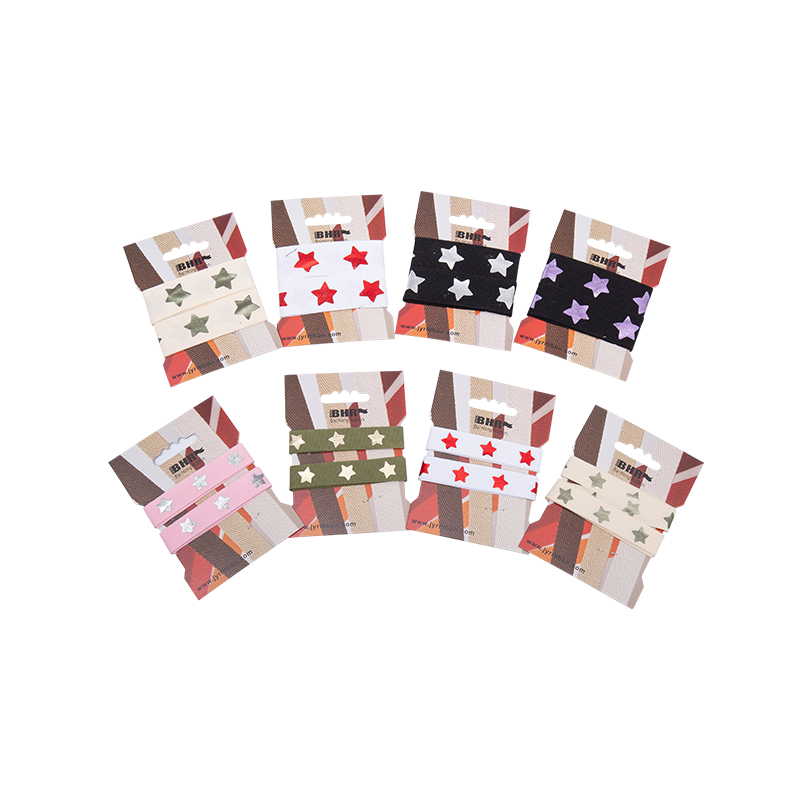
Current market status and procurement guide for low-priced cotton webbing suppliers
Cotton webbing industry market overview
In recent years, with the increase in environmental awareness and consumers' preference for natural materials, the market demand for cotton webbing has continued to grow. As an environmentally friendly, durable and multifunctional material, cotton webbing is widely used in clothing, home furnishings, luggage, handicrafts and other fields. Due to the fierce competition in the market, many buyers are looking for cotton webbing cheap price supplier to reduce production costs.
Globally, Asia is the main production and supply of cotton webbing, especially in countries such as China, India and Pakistan. With its mature textile industry chain and low labor costs, these regions can provide products with competitive prices. However, when choosing a supplier, in addition to paying attention to cheap price, buyers also need to comprehensively consider factors such as product quality, lead time and supplier reputation.

How to choose a cost-effective cotton webbing supplier
When looking for a cotton webbing cheap price supplier, buyers need to pay attention to the following key factors:
1. Raw materials and production processes
High-quality cotton webbing should be made of 100% pure cotton or high proportion cotton blend material to ensure softness, wear resistance and environmental protection. Low-end suppliers may use recycled cotton or inferior yarns, causing the product to break, fade or shrink. Therefore, the buyer should ask the supplier to provide raw material certificates and sample test reports to ensure that the product complies with industry standards.
2. Price and minimum order quantity (MOQ)
Low-price strategies are an important means for many suppliers to attract customers, but buyers need to be wary of hidden costs, such as after-sales problems caused by additional freight or low-quality products. Some cheap price suppliers will set higher MOQs, which may increase inventory pressure. Buyers are advised to give priority to suppliers that support small batch trial orders to reduce procurement risks.
3. Certification and compliance
For buyers exporting to European and American markets, it is crucial whether the supplier has certifications such as OEKO-TEX, GOTS (Global Organic Textile Standard) or BSCI (Commercial Social Compliance Initiative). These certifications not only ensure that the product complies with international environmental and safety standards, but also enhance the brand image.
Future development trend of cotton webbing market
1. Popularization of sustainable and environmentally friendly materials
With the global emphasis on sustainable development, more and more brands tend to use organic cotton or recycled cotton webbing. In the future, suppliers with environmentally-friendly certification will have a greater advantage in the market, and buyers are more willing to pay a reasonable premium for green products.
2. Customized demand growth
In addition to standard-specification cotton webbing, the market demand for customized colors, prints, widths and special features such as waterproofing and flame retardant is rising. The cotton webbing cheap price supplier that can provide flexible customization services will be more popular with buyers.
3. The impact of e-commerce and B2B platforms
The rise of cross-border e-commerce and B2B platforms (such as Alibaba and Made-in-China) has enabled buyers to compare prices and services of different suppliers more easily. In the future, suppliers with online operation capabilities will be more likely to reach global customers, and the cheap price strategy will remain one of the key factors that attract buyers.
In the highly competitive cotton webbing market, buyers need to balance price with quality and choose a reliable cotton webbing cheap price supplier. By focusing on factors such as raw materials, certification, customization capabilities, buyers can find truly cost-effective partners to maintain competitiveness in the market. In the future, with the growth of environmental protection and personalized demand, the transparency and flexibility of the supply chain will become a key competitive advantage.
News categories

- Quick Links
- Contact Information
-
-
 NO.137-1 Chenglu Road, Huashi Town, Jiangyin City214421, Jiangsu, China
NO.137-1 Chenglu Road, Huashi Town, Jiangyin City214421, Jiangsu, China -
 +86 138-0616-9220
+86 138-0616-9220 -
 Lhbhzd@126.com
Lhbhzd@126.com
bh@jyribbon.com
sales2@jyribbon.com
-
- Mobile QR Code



 English
English  русский
русский  Español
Español 










